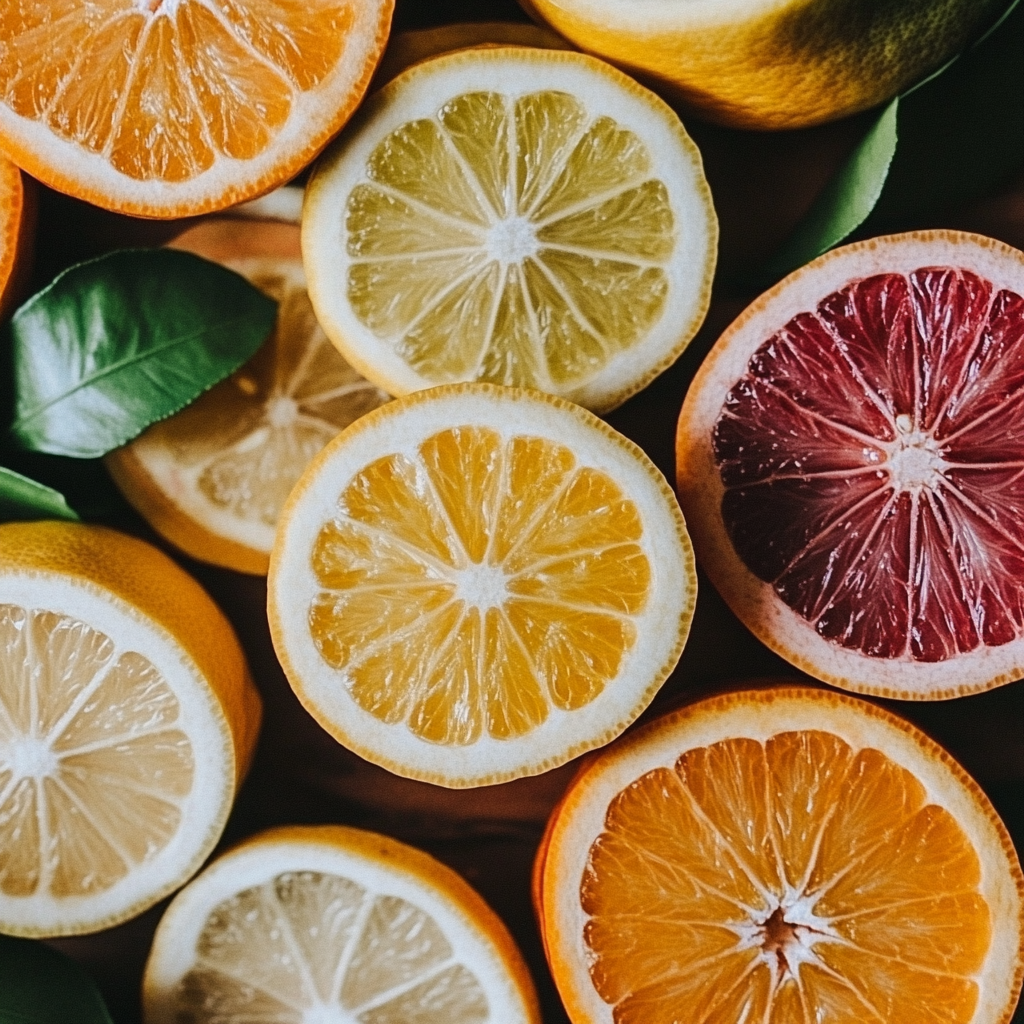Citrus scents have a unique ability to influence our mood and mental state. They are widely used in aromatherapy and everyday life due to their refreshing and invigorating properties. These scents are not only pleasant, but can also significantly improve your emotional well-being, helping you cope with fatigue, anxiety and stress.
History of the use of citrus scents in cultures and traditions
Citrus scents have a long history of use in various cultures and traditions. In ancient times, essential oils obtained from citrus fruits were used for scenting rooms, creating perfumes, and for ritual purposes. For example, in ancient Egypt, lemon and orange were used to create incense and balms that were used for religious rituals and medicinal purposes. Greeks and Romans Citrus scents were also highly valued for their refreshing properties and were used to scent public baths and in cosmetics.
During the Middle Ages, citrus scents gained popularity in Europe, especially among the nobility, who used them to create complex perfume compositions. During this period, citrus essential oils began to be used in medicine, where they were considered effective in improving mood and fighting infections. Today, citrus scents continue to occupy an important place in perfumery and aromatherapy, symbolizing freshness and vitality.
Psychological Impact of Citrus Scents: Scientific Research
Scientific research confirms that citrus scents have a positive effect on a person’s psychological state. Here are a few key effects that were identified:
- Improved mood: Research has shown that the scent of citrus fruits such as orange and tangerine can stimulate the production of serotonin, the feel-good hormone, helping to improve your mood.
- Reduced stress levels: Inhaling citrus scents such as lemon and grapefruit reduces levels of the stress hormone cortisol, which helps you feel calm and relaxed.
- Increased energy and concentration: Citrus scents can help improve concentration and increase energy levels, making them ideal for use in work and study spaces.
These effects are attributed to the presence of citrus compounds in essential oils, such as limonene and linalool, which have stimulating and anti-stress effects. They actively affect the nervous system, helping to improve the emotional background and increase vitality.
Main types of citrus aromas and their specific properties
There are many types of citrus scents, each with unique properties and can be used in different situations. Here are some of the most popular:
- Orange: The sweet and warm aroma of orange is known for its calming and joyful effect. It helps relieve tension, improve mood and create a feeling of comfort.
- Lemon: The fresh and invigorating aroma of lemon enhances concentration and mental clarity. It is often used to relieve fatigue and improve performance.
- Grapefruit: Grapefruit has a refreshing and tonic aroma that helps with fatigue and apathy. It is often used to relieve stress and improve mood.
- Mandarin: Mandarin is a soft and sweet aroma that helps calm and relax. It is especially useful for anxiety and insomnia.
- Bergamot: This citrus scent has light floral notes and is known for its antidepressant and calming properties.
These scents can be used individually or combined to create harmonious blends that enhance their positive effects on mood and mental well-being.
Using citrus scents in everyday life: Practical tips
Citrus scents can be used in a variety of ways to improve mental and emotional well-being in everyday life. One of the simplest and most affordable ways is to use scented candles or diffusers that fill the room with freshness and vigor. Such devices Ideal for offices, study rooms and living spaces, creating an atmosphere conducive to productivity and relaxation.
Citrus essential oils can be added to a bath to create a relaxing and refreshing effect. This is especially useful after a busy day, when you need to relieve fatigue and stress. Oils can also be used for massage by diluting them in a base oil, which helps improve blood circulation and relax muscles. Additionally, citrus scents can be used as a natural air freshener or added to cosmetics to enhance their properties and aroma.
Combining Citrus Fragrances with Other Oils: Creating Effective Blends
Combining citrus scents with other essential oils allows you to create unique blends that enhance their positive effects. For example, the combination of orange and lavender helps create a balance between relaxation and invigoration, ideal for evening relaxation. Grapefruit and rosemary can be used to improve concentration and increase energy, especially in the morning.
It is important to consider that when creating mixtures, the correct proportions should be observed and individual reactions to aromas should be taken into account. Some oils can enhance each other, while others can create unexpected and unpleasant combinations. Therefore, before using a new mixture, it is recommended to test on a small area of skin or use fragrances in small quantities to evaluate their effects.
Citrus scents have many positive properties that can greatly improve our mood and mental state. They are easily accessible and versatile, making them ideal for use in everyday life. Using these scents correctly, knowing their properties and how to combine them can help create a comfortable and positive atmosphere in any space.
Yes, citrus scents such as orange and grapefruit can help improve your mood and reduce anxiety thanks to their stimulating and refreshing properties.
Citrus essential oils may cause photosensitivity, so they should be used diluted and avoid exposing treated skin to sunlight for 12 hours after use.

